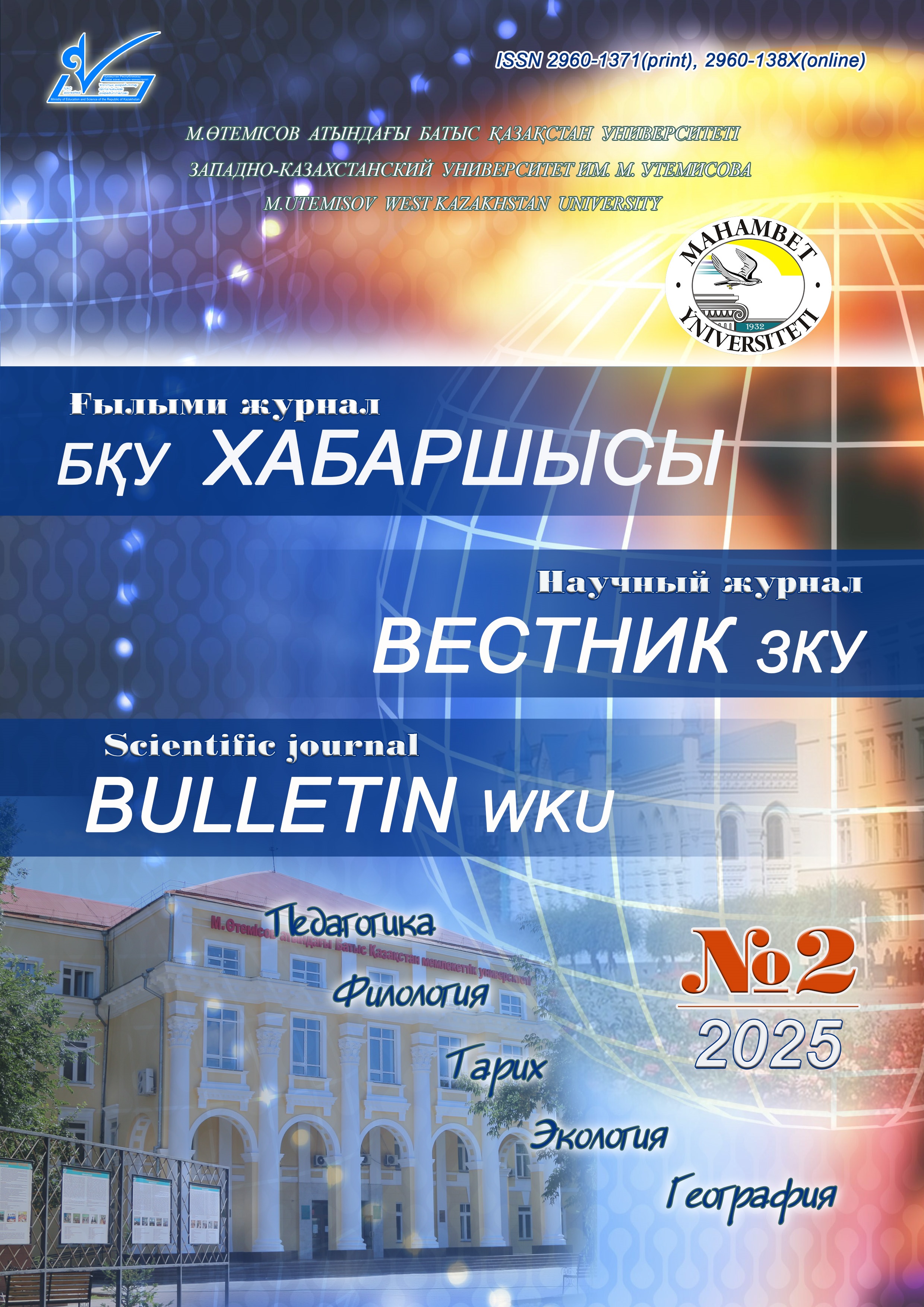ASSESSMENT OF POLLUTION OF FRAGILE FOREST ECOSYSTEMS BY METALS AND PESTICIDES IN THE CONDITIONS OF EASTERN KAZAKHSTAN
Abstract
Forest ecosystems play an important role in maintaining biological diversity, regulating climate, and conserving water resources. However, in recent decades they have been exposed to significant anthropogenic impacts, including heavy metal and pesticide pollution. East Kazakhstan is a region with a developed mining industry and intensive agriculture, which leads to the accumulation of hazardous substances in soil, vegetation and water bodies. This article discusses the problem of contamination of forest ecosystems with heavy metals (Pb, Cd, Zn, Cu) and pesticide residues. The study was conducted at several sites with varying degrees of anthropogenic stress. The sampling of soil, vegetation and water was carried out in accordance with international standards. Heavy metals were analyzed by atomic absorption spectrometry, and the pesticide content was determined by gas chromatography. The results showed a significant excess of the maximum permissible concentrations (MPC) for a number of pollutants, especially in areas adjacent to industrial enterprises and agricultural land. It has been found that the accumulation of heavy metals leads to deterioration of the soil structure, a decrease in its fertility and a change in the composition of the soil microflora. High concentrations of pollutants have been recorded in vegetation, which can pose a threat to animals and humans. In addition, the migration of pesticides into aquatic ecosystems indicates the risk of further spread of pollutants. Based on the data analysis, recommendations are proposed to reduce the negative impact on forest ecosystems. These include the introduction of pollution monitoring systems, the use of bioremediation methods, and the development of strategies for sustainable management of natural resources. This study confirms the need to strengthen control over emissions of harmful substances and introduce environmental protection measures to preserve the ecosystems of Eastern Kazakhstan.



